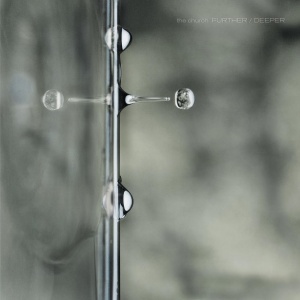
The Church
Further/Deeper
Unorthodox
“Under the Milky Way,” The Church’s only flirtation with anything like mainstream success, came in 1988. The band had been together for eight years by that point and had released four solid full-lengths (1982’s The Blurred Crusade, their second, was a sound-defining album for the Sydney four-piece), so the wider recognition was no doubt welcome and perhaps even overdue. And yet by the time the exotic, experimental grandiosity of Sometime Anywhere appeared six years later, it was clear that any subsequent popular appeal would be incidental rather than intentional. After being dropped by Arista, their longtime record label, shortly afterward, which also meant abandoning a promotional tour, they could have been forgiven for calling it a day. Equally talented artists have been scuppered by far less.
Here we are, though – 35 years after The Church first decided to call itself a band, and the albums keep appearing at fairly regular intervals. Further/Deeper, the band’s twenty-first, is their first since the departure of guitarist and early member Marty Willson-Piper in 2013 (he was replaced by Ian Haug of Powderfinger), yet the change in lineup appears to have had nothing but a beneficial effect. Intimate and expansive by turns, quietly reflective and yet cosmically grand, it easily ranks among the band’s best, namely, Heyday (1985), Priest=Aura (1996), After Everything Now This (2002) and Forget Yourself (2003).
The salient quality of Further/Deeper is its density. Even a gossamer-light track like “Laurel Canyon” feels symphonic and baroque, with its rich, multilayered guitars (the two acoustics make for a great stereophonic headphone effect), warbled vocal overdubs, and washes of cymbals. Its chorus rests on a guitar line that sounds like a beautiful cascade of pizzicato strings. The downtempo “Pride Before a Fall” evokes a crowded corner of the cosmos, with hollow, breathy sostenuto notes as a backdrop to Steven Kilbey’s echoed vocals and guitars that trail and ping across the firmament. Then there’s “Globe Spinning,” which drops like an anvil in the middle of the album. It sounds more Charlatans than Church, an uncharacteristically groove-heavy track with sheetlike synths and thick clouds of oscillating guitars rolling back and forth across the soundscape. “Old Coast Road,” told in a dusky time-lapse montage to the rhythm of an insect-like cymbal tick, sees its cathartic release in a fiery burst of guitars and orchestral keyboards. This kind of intricacy and breadth of sound isn’t new to the band by any means, but here it’s as confident, effortless and natural as it’s ever been.
If Further/Deeper is let down by anything, it’s nominal. “Toy Head” inadvertently trivializes a song that, in addition to being exquisitely sinister, is downright bold in how it deals with pace: building, slowing, plodding, grooving, ambling, exploding. The equally unfortunately titled “Love Philtre” lends a strange hint of innuendo to an intensely melancholy track with an emotionality heightened by its shifting extremes of instrumentation. Still, at least nothing revisits the pretentious missteps of “Hotel Womb,” “Terra Nova Cain,” or Hologram of Baal.
After “Lightning White,” with its pounding chicka-chicka-chick-thwack percussion (the versatility of drummer Tim Powles’ is yet another recurring highlight of Further/Deeper) and extended reverse guitar, there’s a sense of relaxed dissolution, and the album drifts into a hazy, atmospheric dreaminess for “Let Us Go” and “Volkano.” That open-ended slide into the ether is halted by “Miami,” an eight-minute jam-style track that has the clean, four-minute rock of Starfish at its core. I confess to some ambivalence here. On the one hand, “Miami” is a self-assured closing statement to an outstanding album that features the first major change to the band lineup since drummer Richard Ploog’s leaving in 1990. On the other, it would have been in keeping with the spirit of the album-both musically and philosophically-to have allowed that dissolution to continue, ending on a less conclusive note than it already does. The whole aesthetic of Further/Deeper seems to cry out for a conspicuous absence of finality, leaving its contents to spill out beyond anything so mundane as running time and mingle with the expanding universe like so much dust and vapor.












